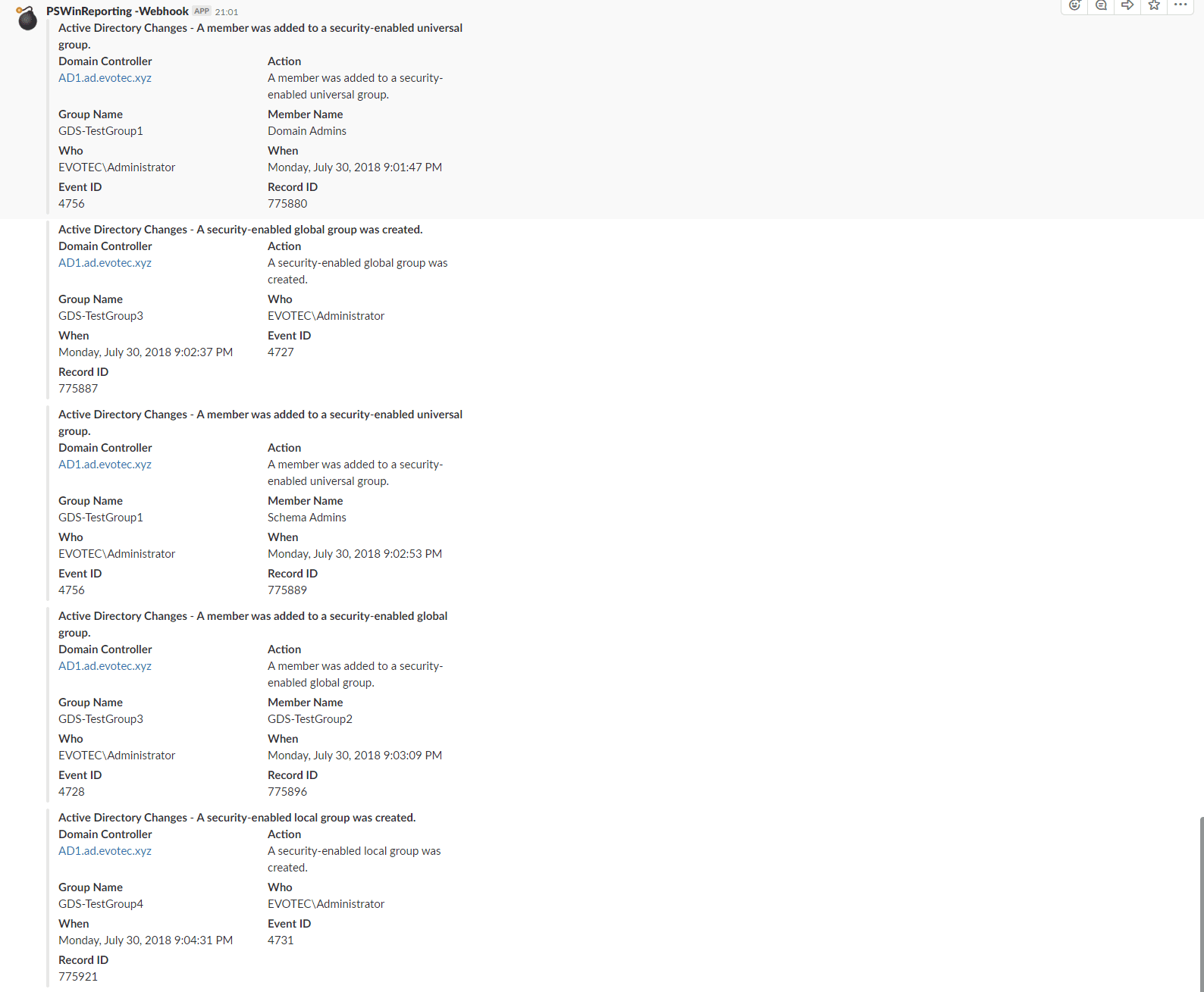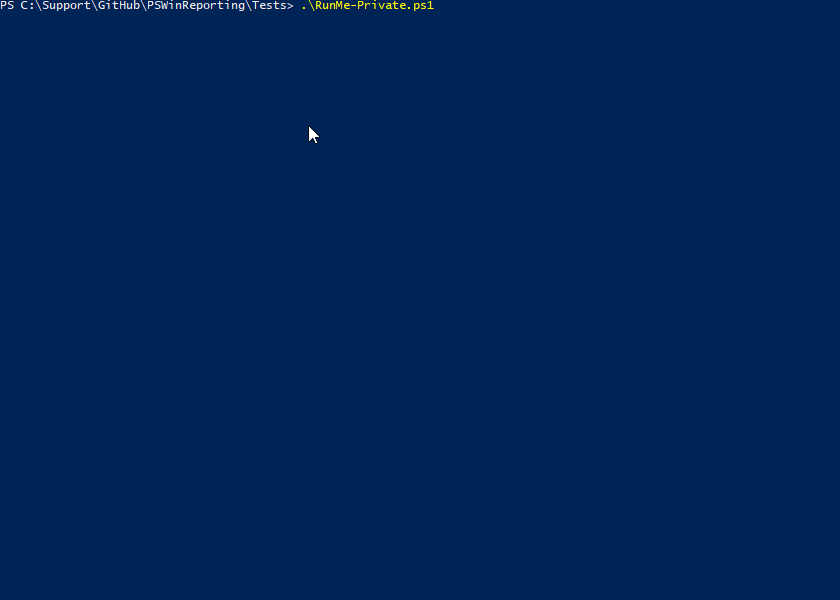
PSWinReporting
PSWinReporting is a little PowerShell module that solves the problem of monitoring and reading Windows Events. It allows you to set up monitoring of Domain Controllers (and from 2.X any other servers) for events that happen on them. By default, it comes with built-in Active Directory events supports, but since 2.0 you can configure it to monitor anything. You can set up reporting on any types of events and have emails delivered with a summary of hourly, daily, weekly, monthly or quarterly changes. It also supports sending notifications to Microsoft Teams, Slack, and Discord. Make sure to go thru related articles as they have all the KNOW HOW which is quite useful if you want to get everything from this module.
Currently, there are 2 branches of PSWinReporting.
- Legacy branch – available in PS Gallery as PSWinReporting – Install-Module -Name ‘PSWinReporting’ -Force
- Master branch – available in PS Gallery as PSWinReportingV2 – Install-Module -Name ‘PSWinReportingV2’ -Force
PSWinReportingV2 – Master Edition
Master edition is a complete rewrite and a new beginning. It provides the same functionality as the Legacy 1.X version and then some more.
- Ability to translate report and have it suite your needs
- Ability to completely modify events monitoring
- Ability to monitor any servers, for any events using simple to use schema
- Ability to target multiple servers, computers or files at the same time
At this moment there is no documentation for PSWinReportingV2 except for those articles below. Feel free to explore Examples if you’re eager to try the new version — otherwise fallback to PSWinReporting Legacy Edition.
Built-in Active Directory Reports
PSWinReporting comes with predefined, built-in reports. Those are for Find-Events. Those also come defined in example configuration script which you can use straight away after verifying everything is as per your requirement.
- ADComputerChangesDetailed
- ADComputerCreatedChanged
- ADComputerDeleted
- EventsReboots – least prepared report. Not really useful at this moment.
- ADGroupChanges
- ADGroupChangesDetailed
- ADGroupCreateDelete
- ADGroupEnumeration
- ADGroupMembershipChanges
- ADGroupPolicyChanges
- ADLogsClearedOther
- ADLogsClearedSecurity
- ADUserChanges
- ADUserChangesDetailed
- ADUserLockouts
- ADUserLogon
- ADUserLogonKerberos
- ADUserStatus
- ADUserUnlocked
- ADOrganizationalUnitChangesDetailed (added in 2.0.10)
Built-in Reporting Times
PSWinReporting comes with predefined report times. This means you can use True/False to enable/disable period. In case of Find-Events, you can use defined times (checked only) from DatesRange parameter.
- CurrentDay
- CurrentDayMinusDayX
- CurrentDayMinuxDaysX
- CurrentHour
- CurrentMonth
- CurrentQuarter
- CustomDate
- Everything
- Last14days
- Last3days
- Last7days
- OnDay
- PastDay
- PastHour
- PastMonth
- PastQuarter
Of course, you can also define DateFrom, DateTo parameters for custom use when using Find-Events command.
PSWinReporting – Legacy Edition
Legacy edition will continue it’s life as 1.X.X. If you want to keep on using it, feel free, but it’s highly encouraged to use 2.x.x when it’s fully functional with all features. Code is available as Legacy Branch.
Following AD Events are supported:
- Group create, delete, modify (Who / When / What)
- Group membership changes (Who / When / What)
- User changes (Who / When / What)
- User created / deleted (Who / When)
- User password changes (Who / When)
- User lockouts (Who / When / Where)
- Computer Created / Modified (Who / When / Where)
- Computer Deleted (Who / When / Where)
- Event Log Backup (Who / When)
- Event Log Clear (Who / When)
Features:
- Support for Event Forwarding – monitoring one event log instead of scanning all domain controllers
- Support for Microsoft Teams – Sending events as they happen to Microsoft Teams (only supported when forwarders are in use)
- Support for Slack – Sending events as they happen to Slack (only supported when forwarders are in use)
- Support for Microsoft SQL – Sending events directly to SQL (some people prefer it that way)
- Support for backing up old archived logs (moves logs from Domain Controllers into chosen place)
- Support for re-scanning logs from files – a way to recheck your logs for missing information
Changelog v2.0.23
- In some situations, it is necessary to use credentials for getting the Domain Controller using the DetectDC parameter. by @ferwe in #77
Download && Use
Copyright (c) 2019 Evotec
